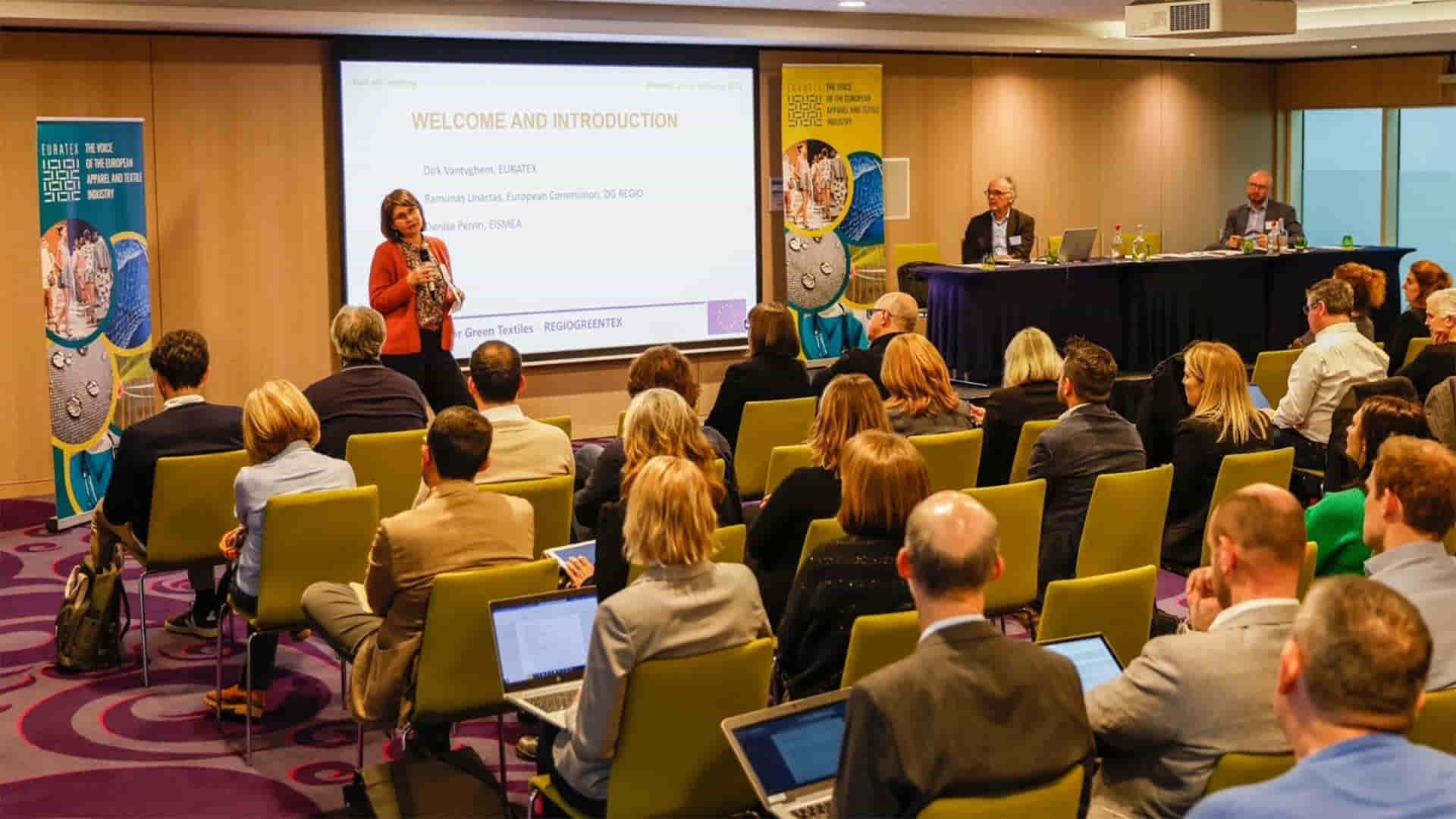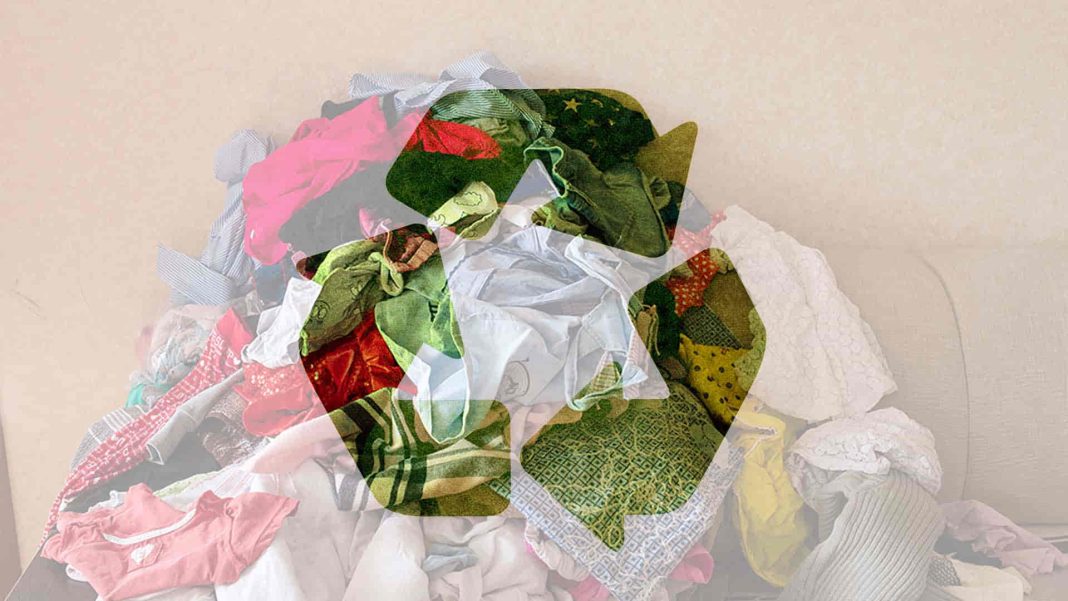RegioGreenTex (Regions for Green Textiles), a quadruple-helix partnership initiative, met in Brussels to kick start a three-year project that should change the way to manage textile recycling. The project aims to provide to maintain and develop jobs in the EU textile sector, reshoring the production in Europe and making the EU textile value chain more competitive and resilient. It will also contribute to the EU Green Deal objectives of reducing carbon footprint, energy and water consumption.
Led by EURATEX, the project brings together 43 partners from 11 European regions, with 24 SMEs pioneering innovative solutions to recycle textile waste. Together the SMEs cover various value chain segments of circular textiles (sorting, recycling from material to fibre, removal of contaminants, processing of recycled fibres to new textile materials) and provide concrete solutions to EU value chain bottlenecks but also seizes upon market opportunities. The project will also promote the development of 5 regional ReHubs in some of the most important textile regions in the EU.
RegioGreenTex, aiming at mapping and reducing the difficulties, which currently exist in the implementation of a circular economy model within the textile ecosystem across the EU, is supported by the European Commission through the Interregional Innovation Investments Instrument – I3. It will be coordinated by the European Innovation Council and SMEs Executive Agency (EISMEA).

RegioGreenTex helps SMEs to bring their project to an investment level
As part of the European Regional and Development Fund (ERDF), the I3 instrument aims at supporting interregional innovation projects in their commercialisation and scale-up phases giving them the tools to bring their project to investment level. This instrument focuses on strengthening economic cohesion in the EU by helping businesses work with innovation actors in other regions.
EURATEX Director General Dirk Vantyghem made the following statement regarding the project: “RegioGreenTex will support our companies in making this transition towards a new sustainable business model. We’re happy to have 24 SMEs involved, who will directly benefit from the action. The project should also mobilise regional authorities to engage in textile waste recycling, which can give a new dynamic to the textile industry at large.”
